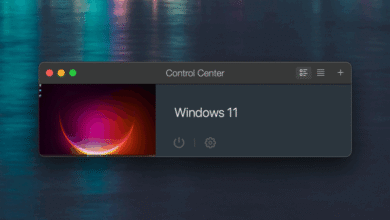Xbox Co-Founder Worries About Their Cross-Platform Policy!

Concerns Around Cross-Platform Strategy: Insights from an Xbox Founding Member
In the rapidly evolving landscape of the gaming industry, cross-platform capabilities have become a trending topic, raising both excitement and concerns among developers and players alike. Recently, a prominent voice from the original team behind Xbox, Laura Fryer, expressed her worries about the future of cross-platform gaming and its potential ramifications for both players and the industry as a whole.
The Evolution of Cross-Platform Gaming
Over the years, the gaming industry has undergone significant transformations, particularly with the rise of multiplayer online games. Cross-platform gaming allows players to enjoy games across different consoles and devices, breaking down barriers that once limited interactions within specific ecosystems. This evolution aims to enhance user experience by fostering greater connectivity and competitiveness among players on various platforms.
Laura Fryer: A Voice of Experience
Laura Fryer, one of the original architects of the Xbox brand, has earned a respected place within the gaming community. With her extensive experience, which dates back to the inception of the console, Fryer has witnessed firsthand the evolution of gaming technologies and player expectations. Her insights into the state of cross-platform strategy are particularly critical, especially considering her foundational role in shaping Xbox’s vision.
The Current Landscape of Cross-Platform Strategy
As we dive into Fryer’s concerns, it’s essential to establish the current landscape. Today, platforms like PlayStation, Xbox, and PC are more interconnected than ever. Games such as Fortnite and Rocket League have successfully leveraged cross-platform play, enabling players to compete regardless of their device. This positive outlook, however, is overshadowed by challenges that the industry continues to face.
Concerns Over Competition
One of Fryer’s primary concerns involves the notion of healthy competition. In a thriving market, competition drives innovation, encourages diversity among offerings, and ultimately enriches the gaming experience. Fryer fears that if cross-platform capabilities become too widespread or mandatory, it may dilute the competitive edge of individual platforms. Each console has unique features and exclusive titles, attributes that entice players to choose one over the others. If the lines blur excessively, the distinctiveness that drives competition could be compromised.
The Potential Risks for Developers
Another critical point Fryer raises pertains to game developers. Creating games that can function seamlessly across multiple platforms is not just a technical challenge but also a strategic one. Developers invest significant resources into creating unique gaming experiences tailored to specific consoles. As the industry leans more into cross-platform gameplay, it risks hampering the creativity and innovation that define game design.
Fryer advocates for an approach that retains a balance. Developers should be empowered to deliver tailored experiences while also being given the opportunity to explore cross-platform capabilities where feasible. This balance would allow for collaborative gameplay without stifling the creativity intrinsic to game development.
User Experience: A Double-Edged Sword
Another layer of complexity lies in user experience. Cross-platform capabilities can enrich the experience for gamers by allowing them to connect with friends regardless of their chosen platform. However, disparities in performance, graphical fidelity, and mechanics can lead to frustrations and imbalances. For players who may feel disadvantaged due to lower performance on their particular platform, the experience could suffer. Fryer emphasizes the need for developers to carefully manage these aspects to ensure equitable gameplay for all users.
The Economics of Cross-Platform Play
Moreover, the economics of gaming are shifting. As game platforms continue to develop subscription models and in-game purchases, the financial implications of cross-platform engagement must also be acknowledged. For platforms to thrive economically, they often rely on exclusivity to drive sales. Fryer underscores the importance of maintaining a sustainable economic model while exploring broader gaming horizons.
Looking Ahead: The Future of Cross-Platform Gaming
Despite her concerns, Fryer remains hopeful about the future of gaming. She acknowledges that cross-platform play brings numerous benefits that could revolutionize player interactions and community-building within the gaming space. The potential for camaraderie among gamers is a powerful motivator for the industry to continue exploring cross-platform strategies responsibly.
To foster this evolution, Fryer advocates for open dialogues among industry stakeholders, including console manufacturers, developers, and players. By ensuring that every voice is heard, the gaming community can collectively navigate the complexities of cross-platform gaming and shape its future in a way that enhances the experience for everyone involved.
Conclusion
Laura Fryer’s insights are invaluable as the gaming community navigates the growing trend of cross-platform play. Her experience and perspective remind us that while connectivity and broader access to gaming are desirable goals, it is imperative to approach these innovations in a strategic manner. The balance of competition, user experience, and economic sustainability must guide the industry as it embraces the future of cross-platform gaming.
Summary
- Laura Fryer, a founding member of Xbox, shares her concerns regarding the implications of a cross-platform gaming strategy.
- Cross-platform gaming has evolved to foster connectivity, but it could impact competition among platforms.
- Fryer highlights the risks for developers who may be pushed towards creating uniform experiences rather than unique designs.
- User experience could suffer due to performance disparities across platforms and mechanics that don’t translate equally.
- The economics of cross-platform play pose challenges, especially with subscription models and the need for platform exclusivity.
- Despite these challenges, Fryer remains optimistic about the future and advocates for dialogue among industry stakeholders.





